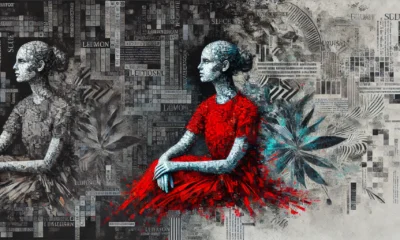Brazil Criminalizes Creation of Deepnude Images in 2025

Brasília, Brazil – In a decisive move on Wednesday (19), the Brazilian House of Deputies voted to approve a groundbreaking bill (PL 3.821/24) that introduces criminal penalties for anyone who creates, manipulates, or circulates AI-generated nude images—commonly known as “deepnude.” The legislation aims to safeguard individual privacy and counter the growing misuse of artificial intelligence for malicious or exploitative purposes.
> https://www.camara.leg.br/proposicoesWeb/fichadetramitacao?idProposicao=2461213 {Brazilian Portuguese}
> https://www.camara.leg.br/noticias/1135019 {Brazilian Portuguese}
> https://www.linkedin.com/pulse/brazil-criminalizes-ai-generated-deepnudes-outsource-it-today-oa1sf/
We punish those who abuse artificial intelligence to commit crimes that transform and distribute images of any citizen in a sexual way.
Yandra Moura
Legislative Details
- Scope of the Bill:
- The bill covers images of nudity or sexual acts that have been deceptively generated or altered using AI.
- It encompasses all forms of distribution, whether via social media platforms, private messaging apps, or other digital means.
- Criminal Penalties:
- Base Penalty: Offenders may be sentenced to 2 to 6 years in prison plus a fine, assuming no more severe crime is involved.
- Aggravating Factors: If the victim is a woman, a minor, an elderly individual, or a person with a disability, the prison term can increase by one-third to one-half.
- Mass Dissemination: When the crime involves large-scale distribution on social networks or other digital platforms, the sentence can be raised by one-third up to double.
- Electoral Context:
- In addition to the Criminal Code modifications, the bill also alters the Electoral Code. If such AI-generated content involves a political candidate, the punishment ranges from 2 to 8 years in prison.
- Criminal convictions may lead to cancellation of electoral registration or the revocation of an elected official’s mandate, in cases where the perpetrator is a candidate.
- Next Steps:
- Having passed the House of Deputies, the bill now moves to the Federal Senate for further debate and a final vote. If approved, it will be signed into law by the President.
- Lawmakers anticipate that these stricter measures will discourage unethical or criminal usage of AI technologies and protect potential victims from reputational harm, mental distress, or blackmail.
Wider Implications
The passage of this bill underscores Brazil’s commitment to proactively addressing deepfake and deepnude technologies, which have grown more accessible in recent years. Privacy advocates hail the legislation as a crucial step, citing rising incidents of AI-driven image manipulation used to harass or intimidate individuals. Meanwhile, critics urge a balance between safeguarding civil liberties and preventing potential misuse of the law.
Experts argue that this move in Brazil could serve as a model for other countries grappling with the ethical and legal ramifications of AI-driven image manipulation. Observers note that as deepnude technology evolves, ongoing updates to legal frameworks will be necessary to ensure the protection of citizens without stifling innovation.
Big Trouble for Deepfakes: Brazil’s Controversial New Law Explained!
By enacting clear criminal penalties and clarifying the legal responsibilities of creators and distributors of deepnude images, Brazilian legislators aim to deter malicious AI use and uphold individuals’ rights to privacy and dignity. The forthcoming debates in the Senate will determine the final shape of this legislation, but the message from Brazil’s House of Deputies is clear: illicit use of AI to fabricate intimate content now has serious consequences.










